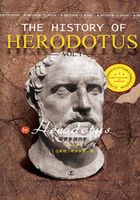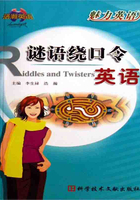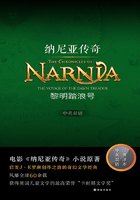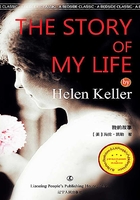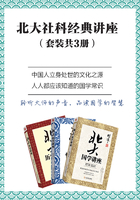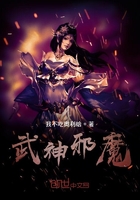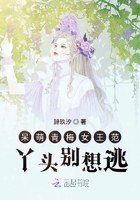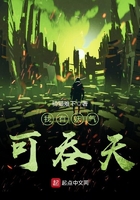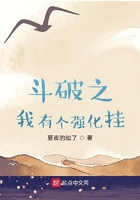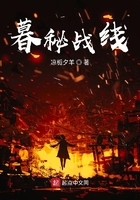A Bloodstained Copy of Sacrifice
AFTER LEAVING TAIYUAN and Old Zhao of Taiyuan's antique trade, I couldn't stop thinking, just who was the owner of "No. 20 Slope Road" ? If I could find the owner, we could find the later inhabitants of the house, and we could follow that lead to find Zhao Daili's whereabouts. What type of woman was she? What would her future fate be? A long seventy years had passed, was she still alive? Did she leave behind any children? If she had already passed away—and this was a strong possibility—would her children be able to provide further information about what her situation was like?This series of questions perplexed me, and I was propelled by the spirit of serious historical investigation. Originally, we saved and published these letters for the benefit of the research community, out of admiration for Ba Jin, as should be done for any other author of previous generations. However, just this would be nowhere near enough. We must search out Ba Jin's readers and fellow intellectuals, and ask, what road did they walk across the ancient country of China?The answers to these questions are distant, deep, real, and seemingly more important. Writers are duty bound to inform us of humanity, inform us of society, and, in particular,to inform us of the lives of the Chinese intellectuals of the previous century.
We ought to return to our efforts, and search for Daili.
Old Zhao had already sneered at me, calling me a "busybody" , and saying that I shouldn't be concerned about the matter. I only recalled that he could help check about the house with the factory administration: I didn't know if we could discover the whereabouts this time. If we could discover the name of an owner, our search would proceed with less difficulty.
I parted with Zhao Congping in the middle of September 2008. After we parted, I first participated in a literary festival in Ordos. From there I visited Beijing, and arranged the editing and publication of Shanxi Aids Sichuan with "Chinese Writers" . In the meantime, as a means of doing my utmost to prevent them from damage, I found the time to make copies of the seven letters, so that it would be possible to view and read them without using the originals. After that, I again went to Enshi in Hubei, spending many days researching at the rail workshop. I returned to Beijing once more, participating twice in conferences about my work. Completing this chapter of my life, I returned to Taiyuan; it was already winter and snow was falling, and the wind was cold and piercing.
Hardly had I driven to Taiyuan and gotten out of the car when I heard that something had happened to Old Zhao.
It was December 7, 2008, at night. I was with my friend Xue Ye from the Shanxi Antiques Village. We raised many glasses, but Xue Ye suddenly stopped his cup at his lips, saying words which surprised all around us, "I have some unhappy news to tell you about Old Zhao—that is to say Zhao Congping who you were in contact with—he was murdered two days ago!"
A mouthful of alcohol choked my lungs, and I couldn't stop coughing.
Xue Ye, coming from a place of poetic fancy, even tried to frighten me, saying that this may even implicate me as a suspect. The reason was that the place where Zhao Congping met his end was none other than Li Xuan Studio, Confucian Temple, No.22, in the room created by a cabinet used as a partition. On the bed was an open copy of my book Sacrifice. It was probable that the shop owner, Zhao Congping, was up late at night reading this book, when unexpectedly, he met with an intruder, who murdered him, splashing the book Sacrifice with blood, which the police thought was an important clue.
I said I was in Beijing, I wouldn't have had time to plot a crime. Xue Ye let out a barbarous laugh, saying that I had excellent driving skills, and, in the dead of night, full of murderous intent, I could have taken a knife and driven the two thousand miles to Taiyuan—because the facts were sketchy, no one could rule out the possibility.
I said, the man is already dead, don't utter obscenities. Again, I asked Xue Ye, how do you know how he was murdered? Xue Ye said, because Zhao Congping's store was located close to the Department of Cultural Preservation, after the incident had happened, to ascertain the value of the goods in the shop, the detectives invited experts of that department such as Mr. Meng to enter the shop and help the investigation. Mr. Meng is our mutual friend, and afterwards he had told Xue Ye that Zhao Congping had died after being stabbed with a knife several times, staining the book Sacrifice with blood.
Xue Ye swallowed another glass of alcohol, finally said, "If you don't believe it, go ask Mr. Meng!"
In a daze, I gazed at Xue Ye's thin and long face, which was already showing signs of early aging. I was still pained by Zhao Congping's death and it took me a long time to regain my strength.I was muddled and I felt that Xue Ye may also not be safe returning home tonight.
Under a lamp at midnight, I read the diary of my contact with Zhao Congping. Then, sighing deeply, I wondered, if two months ago, I hadn't had arrived at a deal with Zhao, where would I be looking for Ba Jin's seven letters today? I was afraid that they would have once again been neglected indefinitely.
As soon as it was daylight, I hurriedly got up, and headed in my car toward the half-street of antique stores at the Confucian temple. I had to see Confucian temple No.22 with my own eyes, to see whether what Xue Ye had said when we were drinking was correct. I stopped the car, and full of suspicion I approached Li Xuan Studio. I saw that the gate had been rolled up four inches, covered with the white seals of Taiyuan police, upon which was written "December 6th" , below which was a red seal, still fresh. Several long seals had been affixed crosswise. It had a feeling of decay, which made me think of the terrifying cross marks on the names of those sentenced to death, commonly seen in the past.
To finally confirm the calamity which had occurred, I stood in front of the door of Li Xuan Studio, and used my mobile phone to dial an old friend in the metropolitan police major case group. If there had been a violent murder case in the provincial capital, he would be sure to know about it. The group leader, Yang Zhiqiang, was a long-time acquaintance of mine. Early on we had discussed about finding time for me to gain a deep experience life in the force, and to write a contemporary police novel.
Officer Yan Zhiqiang was a man of great physical strength and bravery, every day he investigated violent cases and yet didn't ever lose his sense of humour. He answered the phone and informed me that Zhao Congping was murdered on the night of the 4th, and a close friend discovered his body on the morning of the 6th. Afterwards, Officer Yan got straight to the point, saying teasingly on the phone, "Your 'revolutionary' book hasn't been published yet, it's ruined my evidence!" Then, he continued to ask me professional questions, listening attentively, "Who did Zhao Congping have the most contact with these days? Did he have anyone who didn't like him? Zhao Congping was physically strong, could an ordinary person kill him? Do you have any thoughts about the matter?"
How could I have any thoughts about the matter! Officer Yang said, laughing, "If I were to ask you to write a novel about it, where would you look to start concocting a story? An author could really help enlighten us! Tell us, who do you think would come knocking on the antique shop door in the middle of the night … I'm far too dedicated to my work." The results of the telephone enquiry were confirmed: it was true that Zhao Congping had met his end, and that the case was still to be investigated.
To make a simple conjecture, the probability that someone killed him because they wanted to loot the store is high, and most likely, the shop was targeted randomly. Such a random case is the hardest to investigate. There are many reasons as to why a stranger might come knocking on the door in the depth of night, all exceptionally shady, but we won't go into them here. Not long after, the police secretly provided antique traders with photographs of Zhao Congping's snatched goods, so that if anyone presented them, the police could quickly be notified.
Life is impermanent and it's hard to know what's going to happen next. I only hope that Zhao is resting peacefully under the ground.
A friend dies, but life goes on. Even to today, this case has not been investigated. Originally I had hoped that Zhao Congping could help me to find the former owner of "No.20 Slope Road" in the old factory records. From there, we could follow the stream to its source to find Zhao Daili's whereabouts, but evidently this was impossible now.
I would have to continue to look for Zhao Daili by myself, but I could not give up. I could not give up an opportunity to touch history. Zhao's death simply strengthened my determination. Now, I needed to recover from this violent matter, and return to the path of calm logic, and select an appropriate and expedient path, and find the precise direction in which to search to avoid taking a circuitous route, until I could figure out clearly the many joys, sorrows, partings and reunions of Daili's life.
This "new woman" from seventy years ago, and those like her, revolutionised society. They gave bravely of themselves, throwing off the fetters of domestic life, painstakingly searching for the road to their country's salvation … and it is precisely because of this that we want to know so badly what the final results of their ceaseless struggles were to be. Why did Zhao Daili, a seventeen-year-old girl from Shanxi, who was still studying at the time, write a letter to far away Shanghai and to far away Ba Jin—to the unknown future? It was for a bright, free China, and for a vibrant and beautiful "new self" !
I had to find her.
I pondered deliberately for some consecutive days, thinking up various search methods in advance: one was the method which I had been following previously, to search old records through a friend in the No.247 Munitions Factory administration, and to find the names of high-ranking officials under the Yan Xishan government who had resided at "No.20 Slope Road" before 1949; another was to use these names, and Shanxi's social studies and history community to look for the basic condition of this family in 1936, around the outbreak of the anti-Japanese war; the third was to ask Yang Zhiqiang or other friends in the police department to be able to consult the records of so-called "traitors" and Taiyuan's old household register files to find the owner of the house; the fourth was to begin an internet search, and to look for Yan Xishan's "Northwest Machinery Bureau" , also known as the Northwest Repair Workshop, which was the predecessor of the No.247 Factory, to see whether or not there was a high-ranking official called Zhao. If there was, he could be the owner of the house, and from there I could search for his descendants in his hometown. With only this information, I was afraid we wouldn't be able to find the young Zhao Daili. I even considered whether Taiyuan Girls' Normal School would still have a register of names from around 1936. It was possible that there might be a record of Zhao Daili and her home circumstances there. Maybe her former classmates had an alumni association, where I could enquire about her circumstances. I was not afraid that there would be too many clues, I was only afraid that there wouldn't be enough.
In the dead of night, I flicked through around ten books about the Yanxi government that I had found in the writers' residence: from therein I extracted the names of many officials named Zhao. I took the names and lined them up as a means of comparison, to see who among them had been the head of the factory.
At the crack of dawn, I finally had a breakthrough. Yan Xishan era munitions factories operated on a huge scale, having eighteen divisions when split up by the type of munitions produced, including heavy and light machine guns and modern cannons. Among the Chinese militias of that era, the Shanxi army was the first to equip a modernised Howitzer legion, and even battlefield helicopters were under urgent production. From the book, A History of Weaponry in Shanxi, we know that before the war of resistance broke out, the Shanxi Munitions Factory already had high-level manufacturing capabilities, with in excess of 6,100 buildings, 5,000 pieces of equipment, 8088 staff, and fixed assets of 10,000,000 silver yuan. Before the war of anti-Japanese resistance, the monthly production of this factory was 100 mortars, 35 light and heavy large cannons, 15,000 artillery shells, 4,000 machine guns and rifles, and 4,200,000 bullets. In 1927, the factory had equipped eight artillery regiments, which later developed into seven artillery brigades and ten armies of field infantry. For an artillery factory of such a scale, it would be impossible for the name of a high-ranking officer not to be recorded.
Among the high-ranking officials appointed by Yan Xishan, there were many with the family name "Zhao" , including a number towering personalities of that period. For example, Zhao Daiwen, a former member of the Xinhai Revolutionary League and Yan Xishan's best friend from during his studies in Japan, became chairman of the provincial government in 1935, and provincial director of the Nationalist Party. However, his residence was not in the city—it was in Shanglan Village. There was also Zhao Chengshou, a high-ranking military officer of the Yan administration, who was commanding officer of the seventh collective army during the war of resistance, who additionally held the position of head of the cavalry; in 1948, he became commander-in-chief of the Shanxi field army. However, it was also recorded that after 1931 he was stationed in Datong, not Taiyuan. There was Zhao Pilian, who was head of the department of agriculture, and deputy head of the Committee on Mongolia and Tibet, an advisor in the executive government, who mostly lived in Beijing. There was Zhao Shouyu, who had fought shoulder-to-shoulder with Yan Xishan in the Xinhai uprising, who later became commander of the allied northwest army, had previously been police chief of Zhengzhou and head of the Yellow River Irrigation Committee, and who oversaw the renovation of Huayuankou. However, he had mostly lived in Shaanxi and Henan. Furthermore, there were the two brothers Zhao Cuizhen and Zhao Cuiying, who were both high-ranking officials of the Yan administration, one of whom lived in Datong, and the other, in Chaha'er. There was provincial party director Zhao Guangting; the heads of China Press, Zhao Dengyong and Zhao Ciying; the head of Jian Press, Zhao Liusheng; youth advisor Zhao Zhiqian; principal of Jinshan Middle School, Zhao Yifeng; the army chiefs, Commanders Zhao Rui and Zhao Jin; the educators Zhao Sancheng and Zhao Zireng; and other individuals. None of them had any connection with military manufacturing. There was only Zhao Fengdong, whose sole area of concern was weapons manufacturing! Moreover, in the high echelons of weapons manufacturing in the Yan administration, there was only one Zhao, and no one else. In passing, I mentioned the name of the general director of the Shanxi Munitions Factory, Zhang Shutian, who was the nephew of Yan Xishan's wife, and who was occasionally referred to as the "general manager" . Zhao Fengdong was responsible for engineering technology.
The scope of the investigation was suddenly reduced.
Some initial investigation revealed that Zhao Fengdong was formerly the head engineer of Yan Xishan's munitions factories, administering eighteen factories, a position previously referred to as "group manager" . Like the father of Chinese rail, Zhan Tian-you, was "group manager" of Zhanjing Railway, and this simply meant that he was head engineer. The eighteen factories were all located around the outskirts of the old city of Taiyuan, so the head engineer couldn't have been stationed elsewhere. In the next stage of the investigation, I discovered that the Shanxi literary community previously had a periodical named Great Changes, which had published an article entitled "A Bibliographic Sketch of Zhao Fengdong" in the third edition of that publication for 1987. Knowing this key piece of information, I figured it wouldn't be hard to search its contents in detail.
I wish to mention again: there was only one Zhao in the higher levels of weapons manufacture under Yan. This gave me great hope.
In November 1937, the Japanese violently attacked Taiyuan, and the Shanxi Munitions Factory urgently shipped in over 1000 mechanical tools and over 200 electric-powered machines to Taiyuan, of which only 2% were received, due to the rest falling into enemy hands. Unexpectedly gaining large quantities of advanced machinery, the Japanese transferred it to the northeast. Because of this, equipment exerted a considerable influence even after 1947 in the war between Yan Xishan and the Communist forces.
Was Zhao Fengdong's house home to the recipient of our letters, Zhao Daili?

